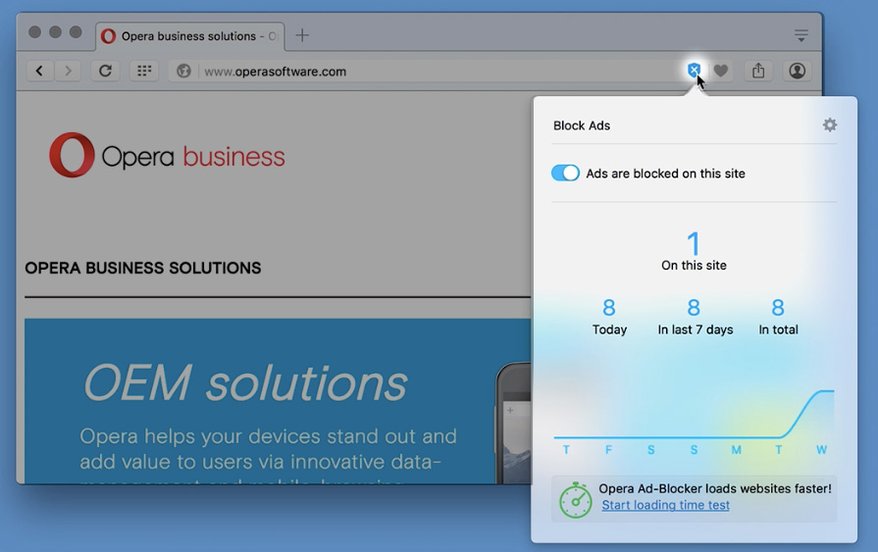-
Tips for becoming a good boxer - November 6, 2020
-
7 expert tips for making your hens night a memorable one - November 6, 2020
-
5 reasons to host your Christmas party on a cruise boat - November 6, 2020
-
What to do when you’re charged with a crime - November 6, 2020
-
Should you get one or multiple dogs? Here’s all you need to know - November 3, 2020
-
A Guide: How to Build Your Very Own Magic Mirror - February 14, 2019
-
Our Top Inspirational Baseball Stars - November 24, 2018
-
Five Tech Tools That Will Help You Turn Your Blog into a Business - November 24, 2018
-
How to Indulge on Vacation without Expanding Your Waist - November 9, 2018
-
5 Strategies for Businesses to Appeal to Today’s Increasingly Mobile-Crazed Customers - November 9, 2018
Opera Browser Launches Dev Release with Built-in Ad Blocker
Opera has become the first web browser to include built-in ad blocking for desktops users.
Advertisement
Opera has been responsible for web innovations that are commonplace now, including tabbed browsing and pop-up blocking.
Opera Software on Thursday unveiled a new version of its desktop web browser that would feature advert-blocking technology built into the webpage rendering engine. And to show off its skills, it also keeps track of how many ads it has blocked.
The statement according to the company said that the use of ad-blocking software grew by 41 per cent worldwide and with 98 per cent of those users on PCs. On the other hand, Mozilla Firefox takes 6.4 seconds in average and Google Chrome 7.7 seconds to load a web page, while using the Adblock Plus extension.
“We are the first major browser vendor to integrate an ad-blocking feature, but this development should be a no surprise to anyone given the rising popularity of ad-blocking software and even Apple allowing it on its platform”.
On top of this, Opera can achieve even more speedup by skipping the third-party plugin and using a built-in ad blocker.
The built-in ad-blocker can be enabled or disabled through a dialog box, without the need for any plug-ins or extensions.
“The new version of the browser could allow some Web sites to load up to 90 percent faster without ads hindering their progress”, Krystian Kolondra, Opera Senior Vice President for Engineering, said in a blog post. A large portion of the content on the web is free because it’s funded by ads, but with more and more users choosing to block ads for various reasons, publishers and content creators have to figure out other ways to monetize their operations or cease to exist.
When we started profiling the performance of adblockers, we found that commonly available block lists are of great quality and can block a lot of ads.
One unique feature of this system is the ability to compare a page’s load times with the blocker turned on and off, showing the huge difference ads can have on a website.
It will be interesting to see if this increases Opera’s tiny market share in the default browser wars, or if users testing this in real life usage to find it better than using Ad Block with either Firefox or Chrome. This is after Eyeo, the company which makes the extension for browsers, encountered problems in creating adblocking software for mobile devices. According to a mobile marketing company called Tune, 24.6 percent of mobile users have installed an ad blocking app in the U.S. As a response, several online newspapers and websites have already created campaigns to discourage the use of ad-blocking filters among its users.
Advertisement
The statement said that Opera also tested its new browser against Microsoft Edge, which does not yet have any ad-blocker extensions.




























